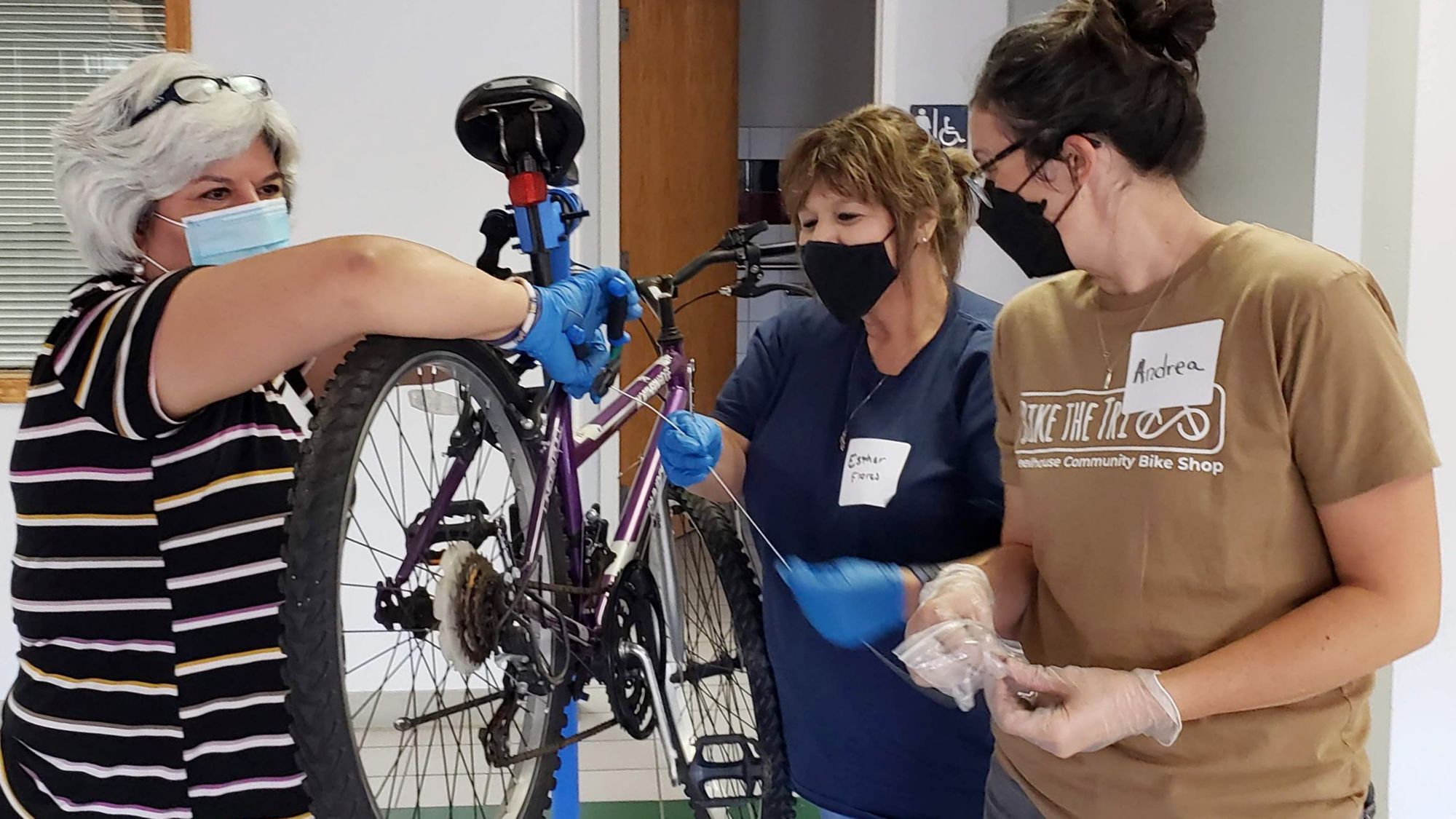After housing, transportation is one of the biggest financial burdens that families face. According to the Bureau of Transportation Statistics, the annual cost of owning and operating a vehicle for an average of 15,000 miles per year is $9,561. Fuel costs account for only 16% of this figure, meaning that the majority of the costs is not a function of mileage. Eliminating a vehicle is one of the biggest cost savings a household can make.
Our transportation system doesn’t just burden individuals, it also burdens us all through climate change. In Washington State, nearly 45% of greenhouse gases come from transportation and private automobile use is the largest contributor. Given the development patterns in most Washington communities, going car-free is not feasible for most households. However, going car-lite, and choosing to carpool, ride transit, walk, or bike for more journeys is the biggest individual climate action we can take.
Columbia Basin College Partnership
According to its vision statement, “Columbia Basin College will be the educational home that transforms students’ lives through economic and social mobility.” CBC’s values include broad-based sustainability for students and the community, and creating a healthy environment that encourages physical and emotional wellness. With an average annual tuition of $4,200 ($206/credit), Columbia Basin College is an affordable choice for Tri-Cities students. Enabling more students to bike to campus would be a significant positive economic impact for students and their families. This is where we come in.

We are excited to announce that we are partnering with CBC to launch our new operating model. Our president, Maggie Vincent, has been working with CBC Associate Professor of Chemistry Eric Melby to organize our first Bike Bonanza of 2022. The Bike Bonanza will take place on the CBC campus this spring with the goal of donating 75 bikes to CBC students, staff, and their families. The donation day will occur in late April, around Earth Day, just in time for a multimodal commuter challenge in May (which is Bike Month) in partnership with Ben Franklin Transit.
CBC is already served by Ben Franklin Transit, but it is located about a mile and a half from the downtown Pasco transit center. Students who live beyond biking distance to CBC would be able to place their bikes on the front of BFT buses and bike the last mile and a half instead of waiting for another connecting bus. CBC is also connected to downtown and nearby neighborhoods through wide sidewalks that students could bike on.
Bike Bonanza Components
You may be familiar with the very end game of a Bike Bonanza. Last fall, we did a Bike Bonanza in East Pasco where we gave way 74 bikes in one afternoon. We also taught a few people, young and old, how to ride with balance bikes of all sizes, and we taught some urban bike riding skills in parking lot drills. Most of the recipients in the fall were kids, and so we provided bike helmets as well. The donation day itself is a large volunteer undertaking, but it pales in comparison to the amount of giving and volunteer hours to get there.
Main image by Maggie Shearer: Volunteers learning to adjust brakes with board member Andrea Constance.
Learn more about Wheelhouse Bike Community at wheelhouse.bike


